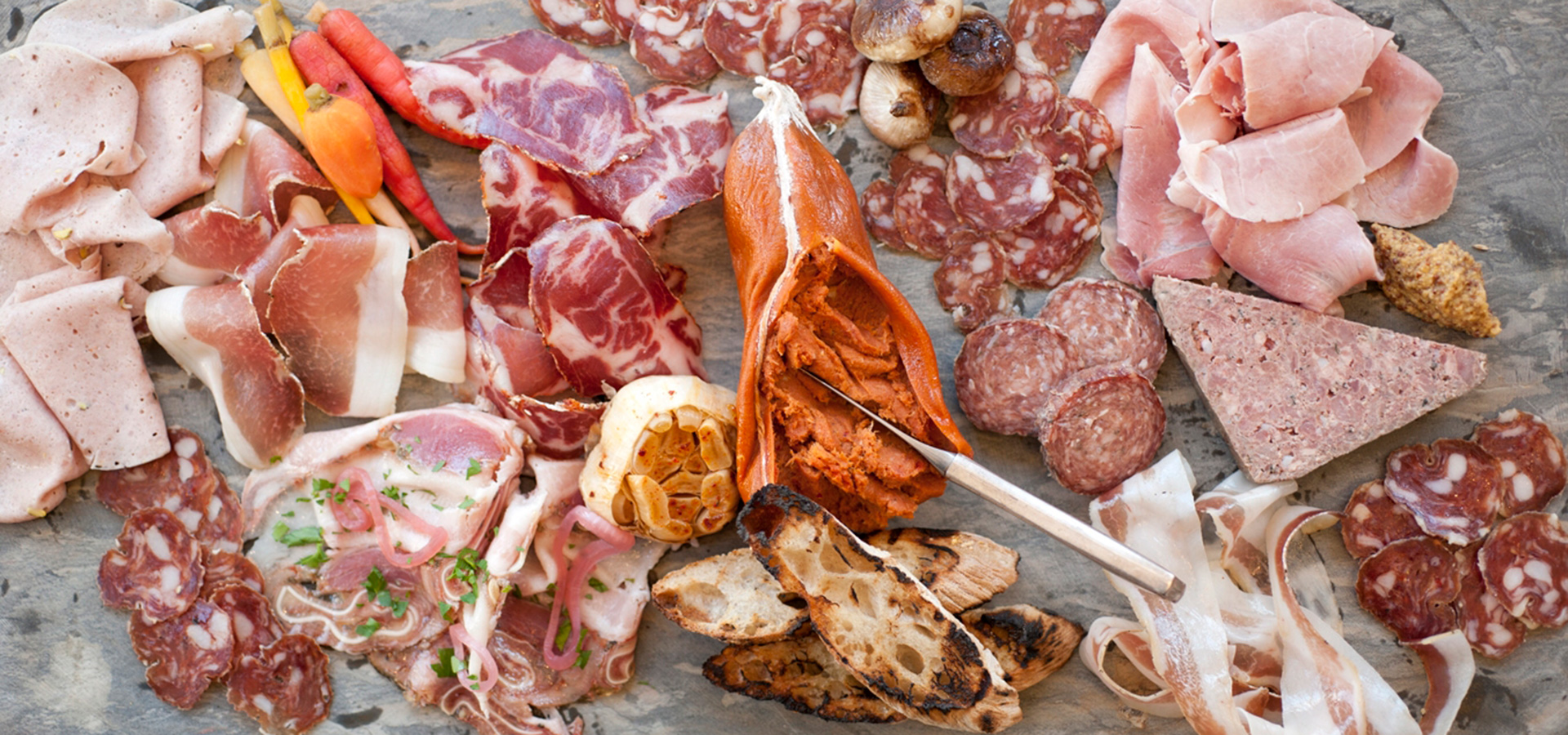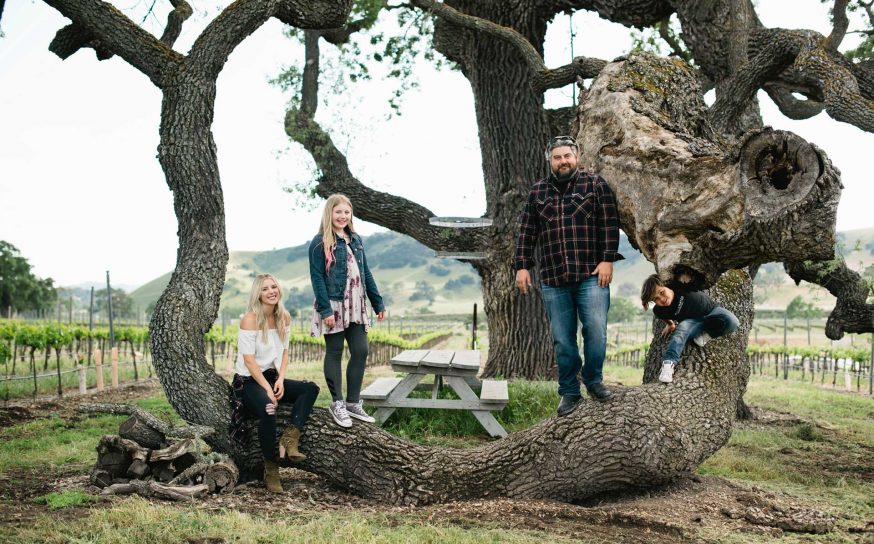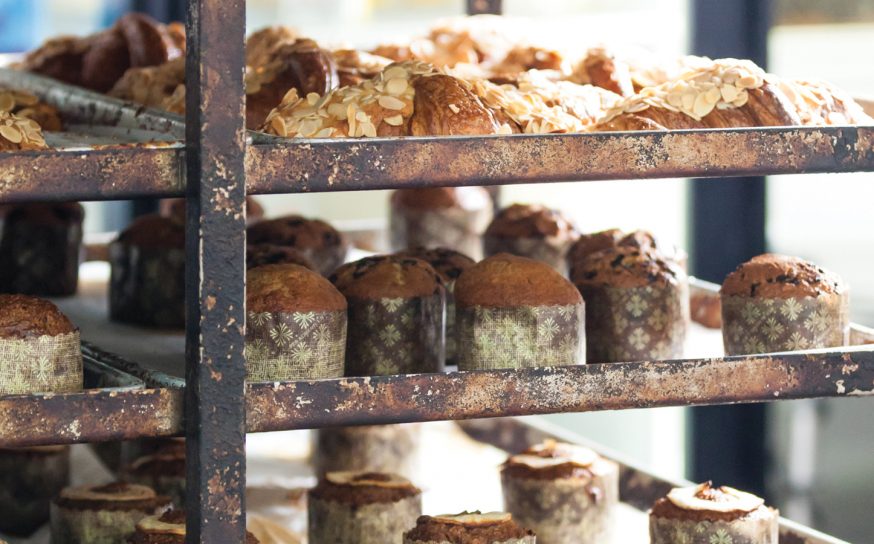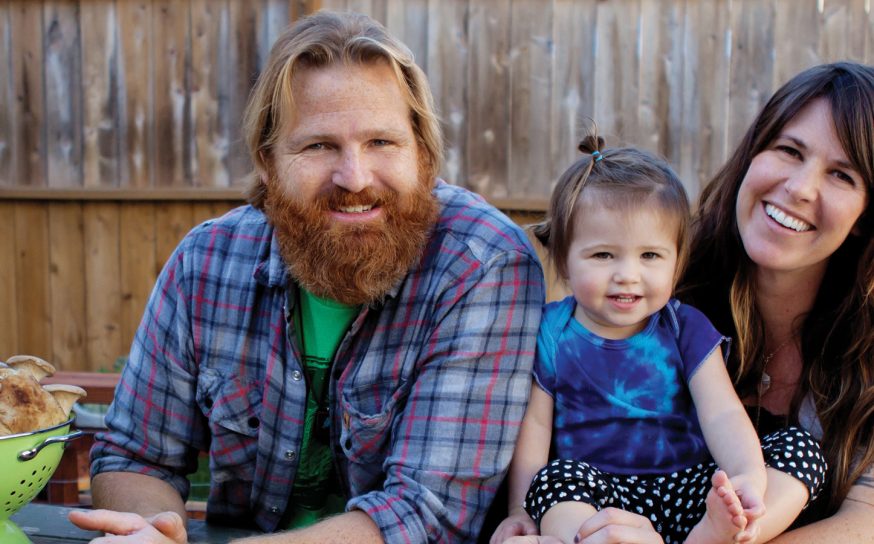From Tech to Speck: Boccalone Offers Northern Californians Artisan Salumi
How a former Silicon Valley professional helped revive San Francisco’s salami-making tradition.
-
CategoryFarm + Table
-
Written byDarren Elms
If you’ve ever visited the epicurean nirvana that is the Ferry Building, you may have sampled one of the cured meats offered by Boccalone’s intimate outpost. The decision to open a salumeria in San Francisco was about much more than attracting an enthusiastic foodie audience, it marked a return to a century-old local tradition. We caught up with Boccalone co-founder Mark Pastore for an enlightening slice of “tasty pig parts.”
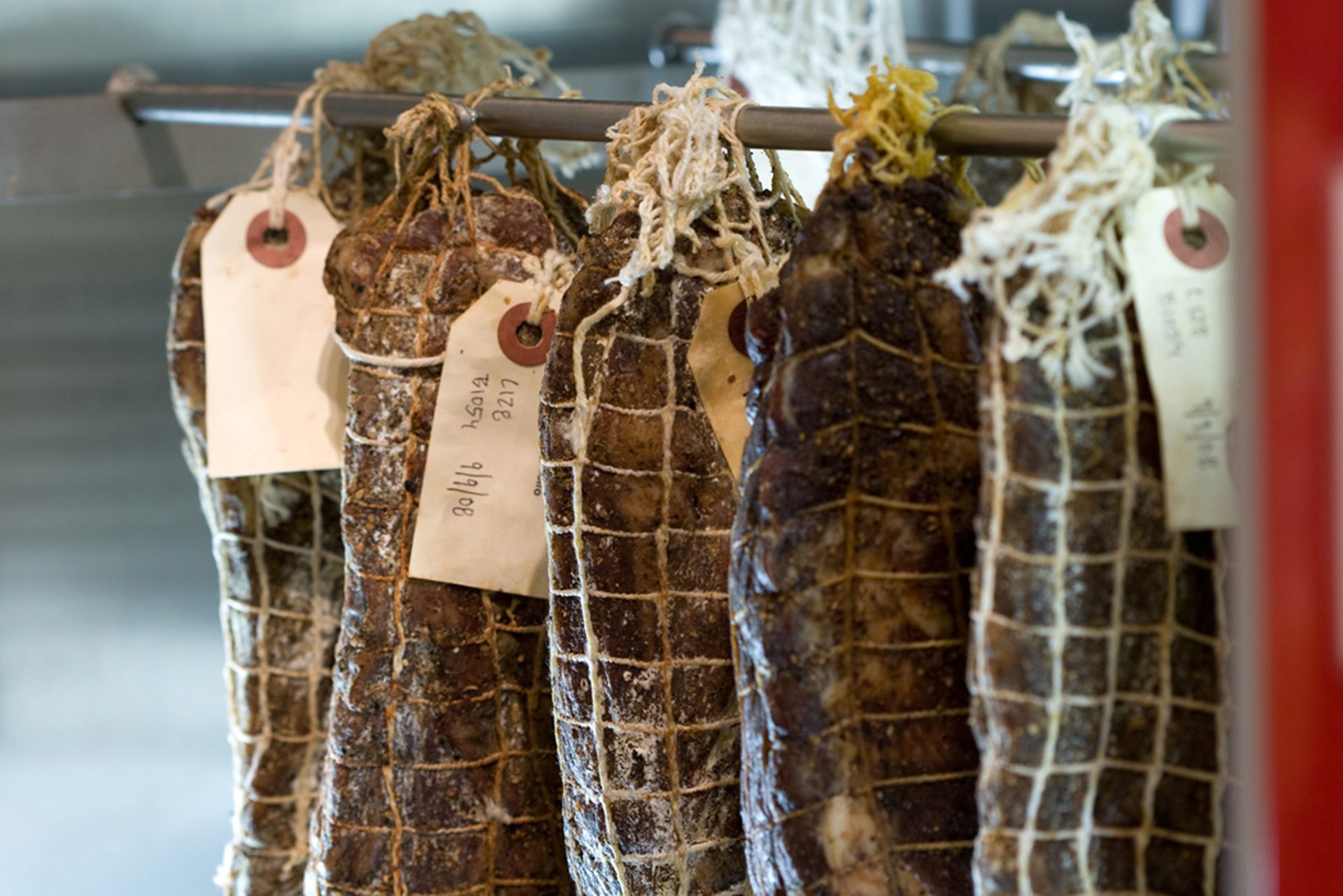
How did you and co-founder and chef Chris Cosentino come to share this passion for Italian gastronomy, specifically salumi?
Mark Pastore: I was an engineering student at Stanford when I had my first life-changing trip to Italy back in 1988. I was blown away by how vibrantly everything tasted, and how serving a meal to guests was more about expressing sincere hospitality than about simply providing sustenance. That trip, and countless subsequent visits, changed the course of my life. After graduating in 1989, I still pursued a Silicon Valley career, but my Italian experiences left me with an itch that had to be scratched. I left my technology career in late 2000 to pursue my culinary dreams full-time.
I opened my Noe Valley restaurant Incanto in 2002 at a time when many chefs were beginning to experiment with in-house salumi curing. Chris joined Incanto in 2003 and was among those at the forefront of that trend. Most of the 25+ varieties of salumi we produce at Boccalone are items that we first produced and served at Incanto over the years.

You make your salumi in Oakland at a factory that once made Portuguese sausages, right?
MP: The Bay Area was the epicenter of the American standard for dry-cured salami back in the late 1960s. A group of San Francisco salumi producers, including Cariani, Columbus, Gallo, and Molinari, lobbied the USDA to establish a standard for American-made “Italian dry salame” that is effectively based on the methods used by Bay Area producers and the special climate we have here. To this day, that standard remains enshrined in USDA regulation.
Since the early 2000s, there has been a re-awakening of artisan salumi-making across the U.S. and the Bay Area has once again re-emerged as one of its capitals. By being a part of that scene, Boccalone joins a Bay Area tradition that goes back more than 100 years.
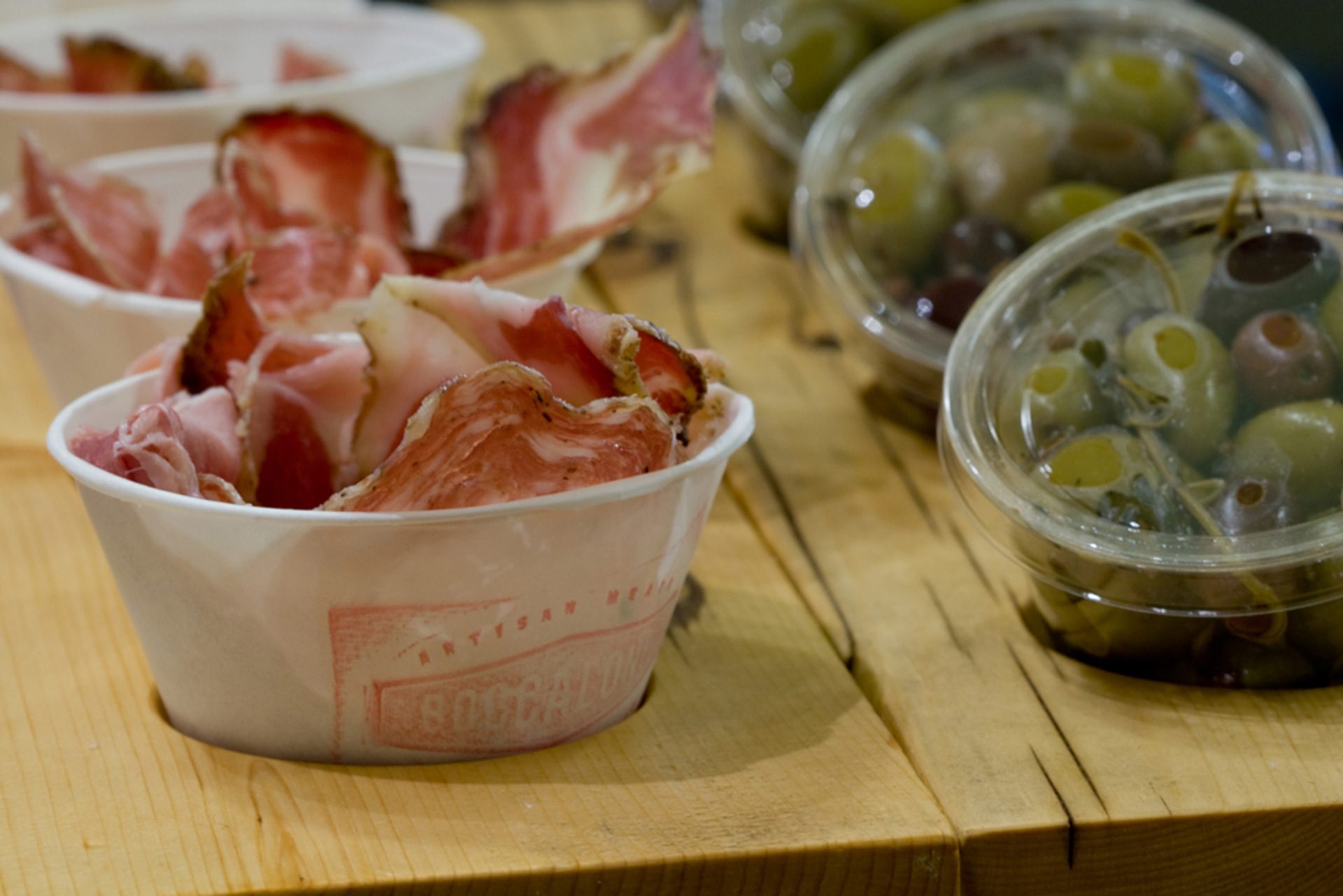
Was it difficult to transition the sausage facility to your salumi-making needs?
MP: The Moniz facility was used almost exclusively to produce batches of the smoked Portuguese sausage, linguicia, for more than 80 years. We wanted to produce about 25 Italian-style salumi, none of which are smoked, in the same space. Reconfiguring the space in 2007 took about six months of construction to upgrade and add some specialized equipment. The most challenging part was knocking down the entire back wall of the building to remove Moniz’s old smokehouse, which got sent off to a small sausage producer near Sacramento.
What does John, the former owner of Moniz’s, think about your product and what you’ve done with his old space?
MP: John was a regular visitor to Boccalone and an enthusiastic supporter for our first couple of years. Lately, his health has been on the decline and we’re not seeing him as much.
Love that. What excites you most about the California epicurean scene?
MP: The variety of quality products found here in California. From the best produce, to world-class cheese, bread, chocolate, and wine, we can find inspiration for our craft from countless farmers, craft-persons, and artisans who have chosen to be here in California.
It’s clearly important to you that the salumi be made here in California. Why is that?
MP: Chris and I are both raising families here in the Bay Area, and ours is fundamentally a family business, so there is no other place we would possibly consider doing this!
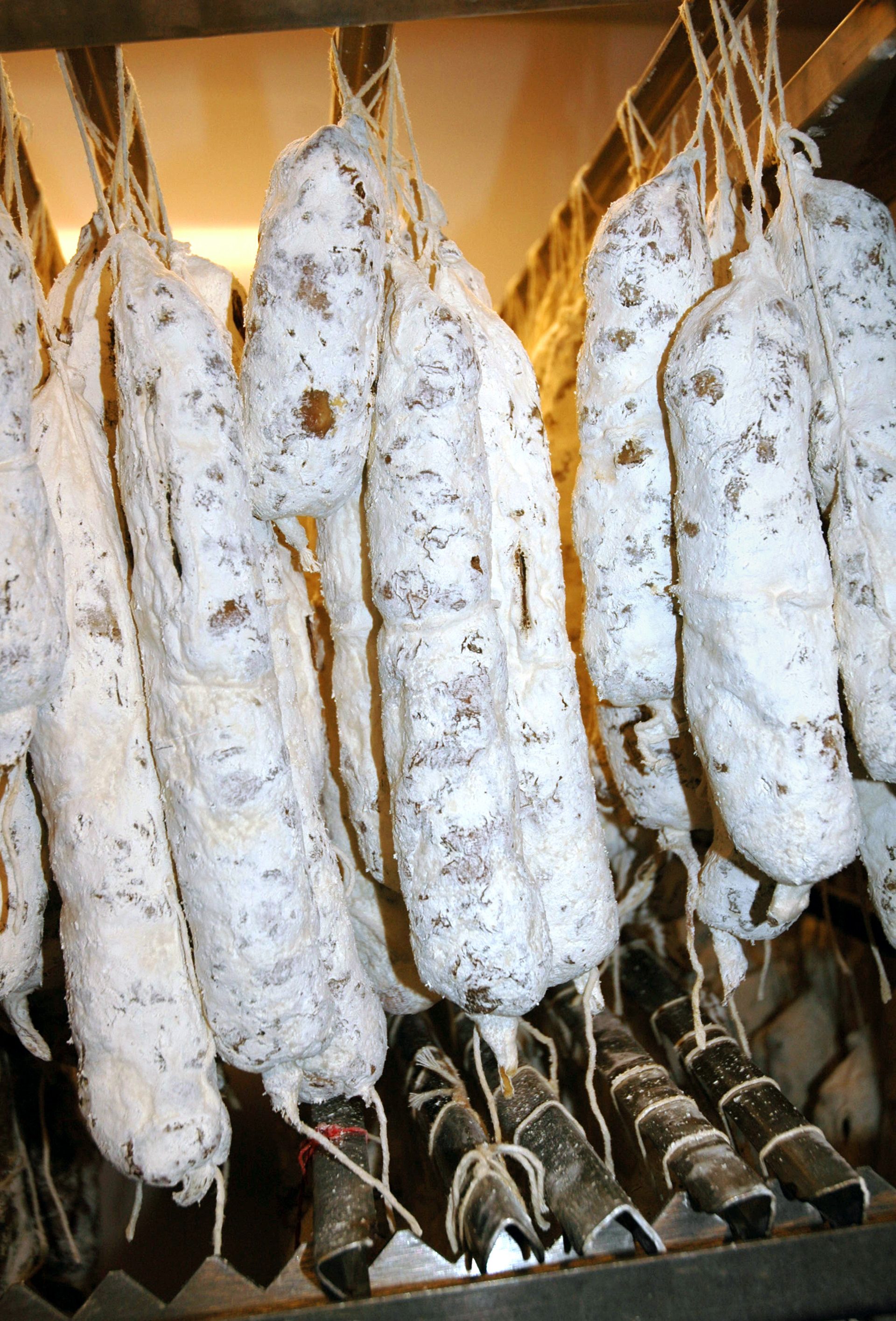
What do you like to pair with your salumi?
MP: At this time of year one of my most favorite pairings is any kind of stonefruit with our beautiful lardo. When the winds are calm on Monterey Bay, we get local sardines. Sardines and Nduja (our spicy, spreadable) salami are a classic Italian pairing and go great together on a rustic grilled bruschetta. We like any of our hard salami paired with a crisp mineral-driven white wine or a nice fizzy Lambrusco.
Man, now I’m hungry. Any favorite dining spots in San Francisco or outside you’d recommend to our readers?
MP: Of course we’d suggest checking in on Chris at Cockscomb near AT&T Park the next time you’re South of Market or on your way to a Giants game.
We will. What’s new at Boccalone?
MP: Speaking of the Giants, we just brought back Mortadella Hot Dogs for baseball season. Our regular Mortadella is one of our most popular sliced products at our Ferry Building salumeria—we produce it in hot-dog format just for the baseball season. Starting around Thanksgiving and through New Year’s, we also make a Mortadella with Black Truffles that is one of our most popular holiday products.
We’re also currently working on a collaboration with a brewery down the street in Oakland’s Fruitvale district—Ale Industries—so look for something coming soon from that!
For more on Boccalone, check their products and salumeria at www.boccalone.com.
Saarloos + Sons Makes Wine to Honor the Family
Listen in as Los Olivos-based Keith Saarloos waxes poetic about family, winemaking and how he could only be doing what he loves right here in California.
Breadbar Bakery Focuses on the Craft and Passion Behind Its Bread
Breadbar co-owner Ali Chalabi takes us through his artisanal wholesale bakery and explains why he stepped away from the retail side of the business.
Shiitake Happens: Mushroom Farming in Southern California
Hippies at heart and endlessly creative, the Parker family finds passion in mushroom farming.
Get the Latest Stories




